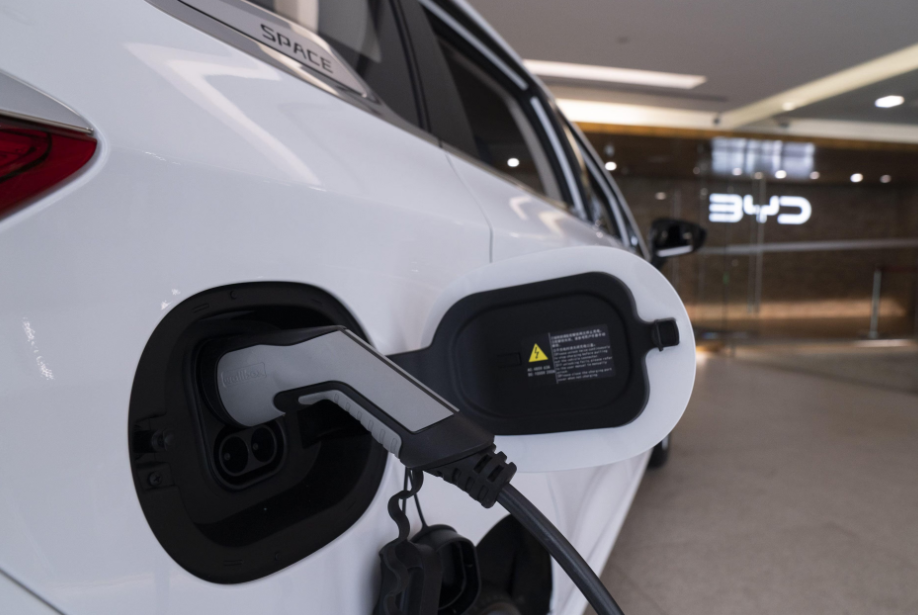As electric vehicles (EVs) continue to gain popularity, many drivers are exploring how electric vehicle insurance differs from traditional car insurance. While electric car insurance shares many similarities with standard auto insurance, it also presents unique challenges and opportunities for both insurers and drivers.
With rising concerns over environmental sustainability and the growing adoption of electric cars, EV insurance is becoming a crucial consideration for potential buyers. Whether you are looking to insure your Tesla, Nissan Leaf, or any other electric vehicle, understanding how insurance works for EVs can help you make informed decisions about your coverage, costs, and options.
In this comprehensive guide, we will explore the key aspects of electric vehicle insurance, including the factors that impact premiums, coverage options, and how to find the best EV insurance rates. We will also discuss the benefits of choosing an electric car insurance provider that specializes in EVs and review the most common questions people have about insuring an electric vehicle.
1. What is Electric Vehicle Insurance?
Electric vehicle insurance refers to the specific type of car insurance designed for electric cars like Tesla, Chevrolet Bolt, and BMW i3. EVs require special considerations when it comes to coverage because their repair costs, parts, and technologies are often different from those of conventional gasoline-powered vehicles.
In many cases, EV insurance policies are similar to traditional auto insurance policies, but there are a few key differences. For instance, electric vehicle repair costs can be higher due to specialized components like the battery pack, electric motor, and charging systems. EV drivers also have access to new car replacement and battery coverage, which can be valuable additions.
2. How Electric Vehicle Insurance Differs from Traditional Car Insurance
While traditional auto insurance covers vehicles with internal combustion engines (ICE), electric vehicle insurance policies need to account for different factors, such as:
2.1 Battery Replacement and Coverage
One of the key differences between electric vehicle insurance and regular car insurance is the coverage of the EV battery. The battery in an electric vehicle is one of the most expensive components, and some electric vehicle insurance policies offer specialized coverage to help with the cost of battery repairs or replacement in case of malfunction or damage.
- Battery failure: If the battery fails prematurely or malfunctions, having battery coverage as part of your electric vehicle insurance can save you thousands of dollars.
- Battery damage: Accidents can damage the battery, which is often located in the undercarriage of the car, and comprehensive coverage may include battery damage.

2.2 Repair Costs
Due to the specialized nature of EVs, repair costs can be higher than those for traditional cars. Electric vehicles require specialized parts and trained technicians, which can increase labor and material costs. As a result, EV drivers may face higher auto insurance premiums due to these potentially higher repair costs.
- Availability of EV parts: Many insurers may have higher rates for electric vehicle repairs due to the limited availability of certain EV parts.
- EV-specific repair shops: In some regions, there may be fewer repair shops specializing in electric cars, potentially increasing repair time and costs.
2.3 Replacement Cost of the Vehicle
Because electric cars are typically more expensive than traditional vehicles, electric vehicle insurance often includes provisions for new car replacement in case of a total loss. This can help you avoid significant depreciation costs, which is especially important for EVs, as they tend to lose value more quickly due to technology advancements and battery life.
- Depreciation: Unlike traditional vehicles, electric cars lose value rapidly as newer models with better range, performance, and technology are released. Some insurers offer replacement cost insurance for EVs to counteract this.
- Comprehensive and collision coverage: Standard policies for electric vehicles will also provide collision and comprehensive coverage, which are important for protecting your vehicle from damage.
2.4 Charging Equipment Coverage
Some electric vehicle insurance policies will also offer coverage for charging equipment, including home charging stations. This coverage can help cover the cost of repairs or replacement if your home charging equipment is damaged or malfunctioning.
3. Factors Affecting Electric Vehicle Insurance Premiums
Several factors influence the cost of your electric vehicle insurance premiums. While many of these factors are similar to traditional car insurance, there are a few specific elements that may impact EV insurance pricing:
3.1 Vehicle Make and Model
The make and model of your electric vehicle significantly impacts your insurance rates. Luxury EVs like the Tesla Model S or Audi e-tron will generally have higher premiums due to their higher repair costs and more expensive parts. In contrast, more affordable electric vehicles like the Nissan Leaf or Chevrolet Bolt may have lower premiums.
3.2 Driving Habits
Like traditional auto insurance, your driving history plays a crucial role in determining your EV insurance premiums. If you have a clean driving record with no accidents or traffic violations, you will likely receive a lower rate. On the other hand, a history of accidents or reckless driving could lead to higher rates.
- Safe driving discounts: Many insurers offer safe driver discounts for those who maintain a clean driving record.
- Telematics programs: Some insurers offer usage-based insurance programs, where your driving behavior is monitored through a mobile app or device, and you can earn discounts based on safe driving practices.
3.3 Battery Size and Range
The battery size and range of your electric vehicle will also affect your insurance premiums. Electric vehicles with larger batteries and longer ranges are often more expensive to insure because they typically cost more to replace or repair.
- Long-range EVs: Electric vehicles with longer ranges, such as the Tesla Model 3, tend to have higher premiums due to their increased cost.
- Standard range EVs: On the other hand, short-range EVs like the Chevrolet Bolt may have lower premiums.
3.4 Location
Your location affects your electric vehicle insurance rates. Living in urban areas with high traffic and more potential for accidents or theft can lead to higher premiums. On the other hand, rural areas with lower traffic and a reduced risk of theft typically result in lower EV insurance costs.
- Urban vs. rural areas: Cities with higher accident rates, theft rates, and repair costs can increase your premiums.
- State regulations: Some states offer discounts for driving an electric vehicle, as they encourage environmentally friendly options.
3.5 Coverage Limits and Deductibles
Just like with traditional auto insurance, the coverage limits you choose and your deductible will impact your EV insurance premium. Higher coverage limits generally lead to higher premiums, but they provide more financial protection in the event of an accident or loss.
- Higher deductible: Opting for a higher deductible can lower your insurance premium, but it also means you will pay more out of pocket if you need to file a claim.
- Lower coverage limits: Choosing lower coverage limits may reduce your premium but leave you underinsured in the event of a major accident or total loss.
4. How to Lower Your Electric Vehicle Insurance Premiums
While electric vehicle insurance premiums can be higher than traditional car insurance, there are several ways to reduce your rates and save money without sacrificing coverage:
4.1 Shop Around for the Best EV Insurance Quotes
Comparing electric vehicle insurance quotes from multiple insurers is one of the best ways to find the most affordable coverage. Each insurance company uses its own formula to calculate premiums, so prices can vary significantly. Use online comparison tools to gather quotes and compare prices and coverage options.
4.2 Take Advantage of EV-Specific Discounts
Some insurers offer special discounts for electric vehicle owners, such as discounts for having a green vehicle or using eco-friendly technologies. Check with your insurer to see if they offer discounts for EVs, such as:
- Eco-friendly vehicle discounts.
- Bundling discounts for combining home and auto insurance.
- Low-mileage discounts if you don’t drive your electric car often.
4.3 Maintain a Clean Driving Record
Maintaining a clean driving record is one of the most effective ways to reduce your car insurance premiums. Safe driving habits, such as avoiding speeding and accidents, will help you qualify for lower rates.
4.4 Consider Usage-Based Insurance (UBI)
Some insurance companies offer usage-based insurance programs that track your driving habits through a smartphone app or a device installed in your car. Safe driving behaviors, such as braking smoothly and avoiding rapid acceleration, can result in discounts.
5. Best Electric Vehicle Insurance Providers in 2024
When choosing electric vehicle insurance, it’s important to find a provider that understands the unique needs of EV owners. Here are some of the top electric vehicle insurance companies to consider:
5.1 Tesla Insurance
Tesla offers its own insurance coverage tailored specifically for Tesla vehicles, including comprehensive coverage for both the car and its
